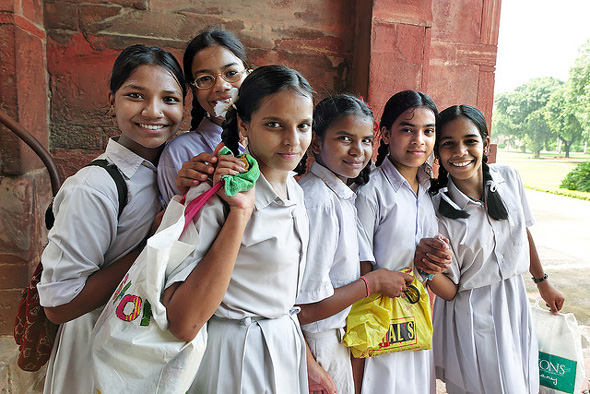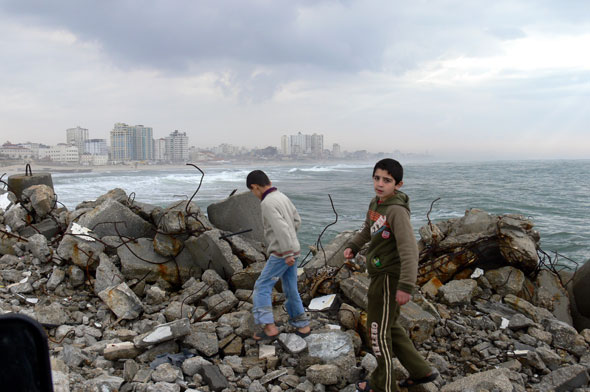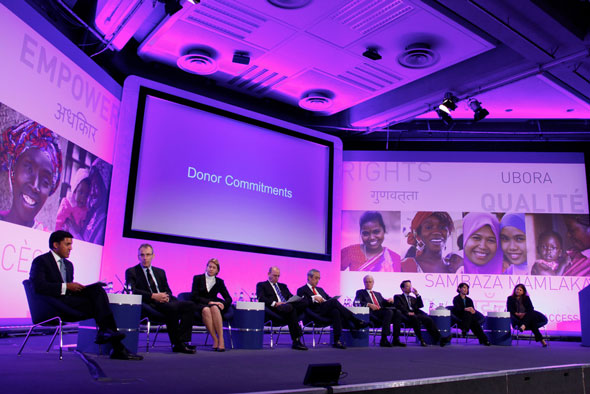-
Hillary Rosner, Momentum Magazine
Bridges and Bicycles in India
›October 8, 2012 // By Wilson Center Staff
This is part of a seven-part “environmental challenges and opportunities” series featured in the University of Minnesota’s fall issue of Momentum magazine.
As world population careens toward nine billion, all the planet’s systems will be strained. Lowering fertility rates is a complex endeavor, and no one path leads directly there. Poverty, access to contraception, education, job prospects, cultural mores – all of these influence family size. So addressing any of them, or a combination, can help. Solutions abound, at least on a relatively small scale, such as conservation programs that include family planning components.
-
Beer: The Perfect Illustration of the Water-Energy-Food Nexus?
›The water-energy-food nexus seems to be garnering more and more attention in the media and elsewhere, and it’s easy to see why: it’s a relatively simple way to illustrate how interconnected the world is today and the kind of domino-like effects that scarcity can have.
-
Manipadma Jena, Inter Press Service
A Lake of Hope and Conflict
›October 4, 2012 // By Wilson Center Staff
The original version of this article, by Manipadma Jena, appeared on Inter Press Service.
Parvez Ahmad Dar climbs three hours to reach the hilltop, generator-equipped tourist center in Ajaf village, 35 kilometers from Srinagar, to recharge his mobile phone.
The 46-year-old president of the Wular Valley People’s Welfare Forum is in high demand as an activist and organizer – he cannot allow the long power outages in northern India’s Kashmir Valley to cut off communication with his constituency.
-
Containing a Development Flood: Green Urbanization in Asia
›
On April 1, 2012, a Chinese woman on her way to work suddenly felt the earth beneath her crumble and, in an instant, found herself plunging into an abyss of scalding hot water. The woman had unknowingly stepped into one of the many sinkholes appearing in China’s megacities. The emergence of sinkholes in China is part of a larger set of environmental issues related to rapid urbanization taking place in the Asia-Pacific region overall. [Video Below]
-
Immediate Action Needed for Gaza to be Livable in 2020, Says UN Report
›October 3, 2012 // By Kate Diamond
Eight years from now, the Gaza Strip will have “virtually no reliable access to sources of safe drinking water, standards of healthcare and education will have continued to decline, and the vision of affordable and reliable electricity for all will have become a distant memory for most,” according to a United Nations report released last month. The bleak assessment concludes that without immediate action to address immense and interconnected economic, demographic, environmental, infrastructure, and social challenges facing Gazans, “the already high number of poor, marginalized and food-insecure people depending on assistance will not have changed, and in all likelihood will have increased.”
-
Maintaining the Momentum: Highlights From the 2012 London Summit on Family Planning
›
This summer, 26 countries and private donors met at the London Summit on Family Planning to pledge $2.6 billion to expand family planning services to 120 million more women in the poorest countries around the world. But while the summit renewed focus on reproductive health with its ambitious target, “we’re now at that point where we have to really sit down and work through” how to achieve that goal, said Julia Bunting of the UK’s Department for International Development at the Wilson Center on September 17. [Video Below]
-
Top 10 Posts for September 2012
›September brought a crop of fresh faces to the top 10 (based on unique pageviews). Valerie Hudson’s spring launch at the Wilson Center of her new book Sex and World Peace, which asks if the domestic treatment of women impacts the security of states, was very popular, and Carolyn Lamere’s snapshot of the current political and development situation along the Nile river basin also jumped the charts.
-
Water and Land Conflict in Kenya in the Wake of Climate Change
›
Earlier this month, there was a flurry of stories about brutal mass killings in clashes between the Pokomo and Orma communities over water and land in southeast Kenya’s Tana River County. The Kenyan media reported that about 30 people, including eight security personnel, had been killed and scores wounded, and reports on the death toll since last month are more than 100.
 A Publication of the Stimson Center.
A Publication of the Stimson Center.








